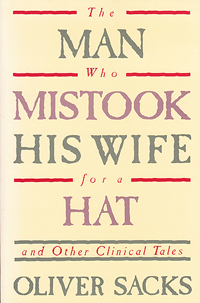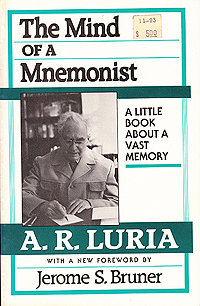

Prologue: Oliver Sacks passed away last weekend, Aug. 30, 2015, of a cancer he had seen coming and had made peace with. He was 82 years old.
I honestly don’t know when or how I first stumbled across Oliver Sacks, but my first Sacks’ book was the influential The Man Who Mistook His Wife for a Hat.
That book came out in 1985, and I got the softcover of the book. So maybe I read it in 1990 or so.
Whatever the case, the book was a revelation. A collection of magazine essays (primarily The New Yorker, I believe), each chapter told of a strange case Sacks had come across in his work as a neurologist, some amusing, some baffling, some so surreal as to make one question the veracity of the teller of the tale.
But that was never an issue with Sacks – he had complete fidelity to his subjects. Some detractors have made Sacks out to be a medical tabloid writer, pandering to our perverse interest in the strange. I can see the point, but vehemently disagree.
More than anyone else, the patients themselves are the heroes of Sacks’ stories: Not the author, not other doctors, not the treatments (this may be a little different in Awakenings, which I haven’t read). Each tale is ultimately about how a person/persons dealt with what is a very unusual condition. Sacks was the disinterested – but very much not uninterested – narrator of the tale.
When people ask why they should read Sacks’ books, I usually say something along the lines of, “He does for neurology/how the brain works what Carl Sagan did for the cosmos.”
Which is partly true. Both men helped the layman gain an understanding of each field, but Sagan’s attempt was more to explain things; Sacks’ approach is more to just expose you to the, as of yet, un-understandable.
Both are valid approaches, and both did what they did well.
The Man Who Mistook His Wife for a Hat‘s preface alone is worth picking up a copy in a bookstore and skimming. Deftly written, it also points to another writer who obviously had a huge impact on Sacks: A.R. Luria, a (then) Soviet psychologist.
I became curious about Luria, and I finally stumbled upon a used copy of his book, The Mind of a Mnemonist. The book is subtitled “A Little Book About a Vast Memory,” and it lives up to its billing: It’s about a Russian Luria ran across who had basically unlimited memory.
Luria periodically followed up with the Russian, and the subject could recall vast grids of numbers years later. The Russian’s memory was so good he had to invent tricks to “forget” things. He’d describe it as putting up a room divider or what have you and putting those memories behind the screen to keep the clutter down.
Incredible.
But again, this came from Sacks (who came from Luria…). That’s what good writers invariably accomplish: Get you to read more, in whatever way (author, subject matter, weird poem referenced). This accomplishment isn’t intentional, it’s just an ancillary benefit a good writer unwittingly provides.
It’s sad that there won’t be anymore Sacks books, but we can re-read what we already have (or have yet to read!).
One final note to the Sacks haters: If there is one word I could use to describe Sacks’ writing about the oft-times baffling maladies his patients presented, it would be compassionate. He writes of them proudly and without any fanfare, as if he was a father describing how a child of his own overcame an adversity.
